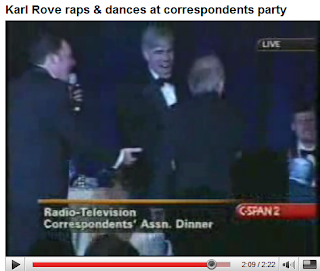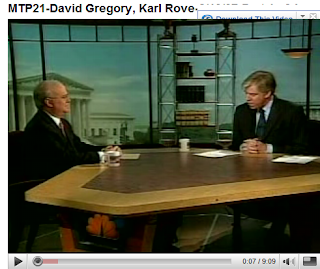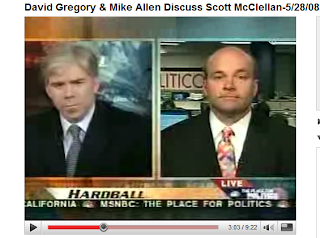(updated below)
Dwight Jaynes is a long-time sports columnist in Portland, Oregon and is one of that state's leading journalists covering the Portland Trail Blazers. In The Portland Tribune this week, where his column now appears, Jaynes recounts how bloggers "led [him] to alter [his] approach to the way [he] do[es] [his] job as a columnist, pushing [him] away from a philosophy [he] held dear for decades in this business."
Specifically, Jaynes describes how his dependence on access to and favors from the very subjects of his journalism -- players, coaches and team executives -- led him to refrain from writing the truth when it reflected critically on those individuals. Unlike bloggers, who deliberately maintain a distance from those about whom they're writing, Jaynes describes that the relationships he formed with the subjects of his column prevented candid and independent commentary:
My guideline for years was that, as a beat reporter or a columnist, I would get to know my sources as best I could. I would be there constantly, in their face. I always felt I was impartial enough to write the truth no matter what. And my core values included being there the day after I wrote something negative about someone I covered -- so they'd have their shot at me, their fair chance to confront me.But along the way, at some point, the whole thing kind of went south. The problem with all that, I've come to realize, is that I got too close to the people I covered.
In the case of a beat reporter, you almost have to have a degree of that in order to come up with the constant flood of stories you need if you’re covering a beat like the Trail Blazers.
Over time, you realize that in spite of all your attempts to know athletes and public figures, what you usually end up writing about them is the cover story -- the half-true piece of semifiction that those people want the public to see. You begin to realize you're usually getting played. And you sold your soul to get it.
Oh, when you get close to sources, you get access. You get inside information. At least you think you do. You get close enough to players and coaches that it's a fan's dream. Sources become something very close to friends, and, I confess, I've been down that road.
But I also know that when that happens, you're probably not going to do your job as well as you should. Yes, I'm old school, and I think it's the job of a columnist or a beat reporter to always tell the truth and be critical when merited, even about the revered home team.
But if you're critical, you risk your access. Forget about the friendships -- you often lose your sources if you offend them.
He then describes that the editing duties he undertook recently have significantly lessened the time he has to interact with the subjects of his column, a development which, to his surprise, he found has improved the independence and candor of his reporting:
Lately, I don't have time to schmooz them at shootarounds and after practice. I can't get on the phone and shoot the breeze with them.Once in a while, it costs me a story. But you know what? As a columnist, I don't feel I need their information or their admiration. And I certainly don’t need to worry about making them happy. . . .
The point to all this is simple. What I've done, I think, is become a blogger in columnist's clothing. The secret to the blogosphere is that bloggers usually don’t have that proximity to coaches and athletes. They aren’t hindered by a need to get along or kiss up to the people they write about.
One of the most frequent criticisms which self-proclaimed journalists voice about bloggers is that journalists (but not bloggers) engage in "real reporting" -- by which they mean that they speak to government officials and then faithfully write down what they say and then include those quotes in the things they write, and often shape what they write based on those quotes. But that's exactly the process that transforms journalists into handmaidens for government propaganda, that makes them fear a loss of access, and renders them dependent on maintaining relationships with the very people whom they're ostensibly scrutinizing.
There are numerous reasons why the function fulfilled most vigorously by our establishment media is to serve the political establishment, but the petty cravings of today's "journalists" to be close to those in political power is without question one of the most significant. It's hard to imagine a more vivid illustration of the disease which Janyes describes than this little vignette:
NBC's David Gregory dancing with Karl Rove at the Radio-Television Correspondents' Association Dinner, March of 2007:
David Gregory, five months later, gently and deferentially interviewing his dance partner on Meet the Press after Rove announced his resignation:
David Gregory, along with The Politico's Mike Allen, expressing deep shock and righteous anger that anyone could possibly think that the media was "too deferential" or acted as "complicit enablers" to the Bush administration: But the reasons why the establishment media serves the establishment are painfully clear to everyone other than these journalists. It's the reporters who cover the McCain campaign swinging playfully at his Sedona ranch while drinking Chardonnay; Newsweek's Holly Bailey:
But the reasons why the establishment media serves the establishment are painfully clear to everyone other than these journalists. It's the reporters who cover the McCain campaign swinging playfully at his Sedona ranch while drinking Chardonnay; Newsweek's Holly Bailey:
There are worse ways to spend a sunny Sunday afternoon than swinging lazily back and forth on a tire swing strung up under a massive sycamore tree in a quiet Arizona canyon, the sound of a gushing stream nearby. Almost grazing the ground and hung on rope that looked to have been tied and retied again over the years, the swing belonged to John McCain, who stood several dozen yards away, carefully monitoring giant slabs of pork ribs on a smoking grill.It was an idyllic scene, and one that might have made the Democratic contenders envious.
That was where, as Megan McCain put it, "the guys from the Politico brought my mom flowers." It's Tim Russert, George Stephanopoulos, Gloria Borger, Tom Brokow and friends following McCain around Manhattan, singing "Happy Birthday" to him. It's all the inter-marriages and other social and professional intertwining between our journalist class and the ruling political elite.
After working for decades as a sports reporter in Portland, Dwight Jaynes is able to recognize how this craven need to socialize and form relationships with the subjects of his reporting corrupted his journalism and converted it into deceptive propaganda: "half-true piece[s] of semifiction that those people want the public to see." That's the core truth which our media stars are most desperate to avoid.
UPDATE: Quite relatedly, Harper's Ken Silverstein has a superb piece today on David Broder, who spent the 1990s righteously condemning journalists as "greedy" and corrupt who received speaking fees and other privileges from industries and organizations about whom they wrote. But as Silverstein documents, Broder himself now regularly receives fees and other junkets from industry associations and PACs about whose policies and interests Broder writes regularly, while never disclosing these relationships to his readers.
"Journalists" such as Broder are so enmeshed in our political and corporate establishments -- such fully-annexed appendages of those establishments -- that there simply no longer exists any distinction, even in theory.



Shares